Those of us who would normally undertake a yearly pilgrimage to Europe for a much-needed injection of Old World culture, but who find ourselves imprisoned here by our own government, can be cheered by some uplifting news from the National Gallery of Canberra. Between 5 March and 14 June, a selection of the National Gallery of London’s finest masterpieces will be on display in our nation’s capital as part of the Botticelli to Van Gogh travelling show. This is a must-see exhibition because it is not only Titian, Velázquez and Renoir coming to town this year. It is also the decolonisers.
Practitioners of decolonisation want to remove all symbols and legacies of our past which they consider to have been irredeemably tainted by colonialism, and their attack on the history of Western civilisation is manifesting in museums and libraries of the West. Once tasked with storing the knowledge accumulated through centuries of discovery, these institutions now believe their role is to critique all they are supposed to value.
Interestingly, the International Council on Museums (ICOM) is at the forefront of the movement to decolonise museums. In 2019, it attempted to force through a new definition of museums at its general assembly through a Standing Committee for the Museum Definition. The committee decided the purpose of museums was no longer about ‘collecting, preserving and providing access to the heritage of humanity’ but rather about ‘human dignity and social justice, global equality and planetary well-being.’
The Chair, Jette Sandahal, wrote that for museums to assert ‘neutrality in relation to urgent societal issues, is an abregation of societal responsibilities’.The committee strongly castigated museums for the ‘reticence with which museums stay away from social conflicts’ and that to focus on the ‘core concerns of inequality and human rights, globalisation, migration [and] climate change’ they should go down the path of ‘denaturalising and decolonising’. Museums, it insisted, should reject ‘the binary hierarchies of Western rationalism’ and become instead ‘places for critical thought’ which will eradicate ‘the colonial legacies of power and wealth’ and confront the ‘privilege’ of museum visitors.
While the radical changes sought by the committee were loudly rejected by the majority of delegates who rightly condemned the cannibalistic amendments to be as ignorant as they were dangerous, the Australian delegates took the opposite stance, enthusiastically supporting the move towards social justice and Gaia worship. It is no coincidence that one of the first committee members was Margaret Anderson, a feminist historian who is currently director of the Old Treasury Building in Melbourne and whose plenary session was a discussion of communities and participation, empowerment and agency. The ICOM has since formed a new and improved Committee to have another crack at ‘museum definition’.
Last year, the National Gallery of Canberra made its decolonising intentions public by hiring an Assistant Director of Indigenous Engagement. It also held a conference entitled ‘Know My Name’, largely centred around feminism and gender equity. A panel session on the first day, ‘Alternate Histories’, sought to examine how ‘Feminist and queer histories, decolonising projects and alternate voices continue to reframe the canon of art history to present new and diversified perspectives on the past, present and future’. The catchcry of the conference’s annual keynote address was ‘Decolonisation is not a metaphor; it is an action’. There are worrying signs too from the National Library in Canberra which has stated in its Collection Development Policy that it will no longer collect books from overseas. ‘We will significantly reduce overseas collecting that does not have Australian content’. Over the pond, the National Library of Wellington is one step ahead, having announced that it is getting rid of more than 600,000 ‘foreign books’ to make space for the New Zealand, Maori and Pacific collection. This is one match away from book burning.
If you want an idea of what is in store for Australia, cast your eyes to the northern hemisphere. Last month, the Arts Council of Britain announced that it will present a ‘decolonisation checklist’ to all 828 institutions in its portfolio, accompanied by a vague threat of fines being metered out to those institutions who fail to sufficiently decolonise. The council need not bother with the British Museum, because it started to decolonise way back in 2017 when the museum’s current director, Hartwig Fischer, announced plans to make the museum less ‘Eurocentric’, stating that the museum should move away from telling the story of world cultures from the European point of view.
Following the death of George Floyd in Minneapolis, Fischer waxed lyrical about how the museum is aligned in ‘spirit’ and ‘soul’ to Black Lives Matter, promising to revaluate the collections in the name of inequality and discrimination. Since then, items from ‘Reimagining Captain Cook: Pacific perspectives’ have been hastily relabelled to reflect the false narrative that James Cook invaded and occupied Australia. The bust of Sir Hans Sloane has been swiftly removed from its pedestal and placed in a glass case in the Enlightenment room, along with information about how he made his fortune from the slave trade. ‘We have pushed him off the pedestal,’ boasted Fischer.
At the British Library, Chief Librarian Liz Jolly declared a ‘racial state of emergency’ and formed a Decolonising Working Group to purge the library of perceived racism. In echoes of Robin d’Angelo’s White Fragility, Jolly stated that ‘racism is a creation of white people’ and that the library is morally obliged to effect cultural change to counteract it. The working group has in its sights a painting of Mr Punch with its supposed connotations of ‘colonial violence’, ‘Eurocentric’ maps and its marvellous collection of Western classical music. Not only are the museum’s contents deemed problematic, but also the building itself, which is said to be a symbol of imperialism because it resembles a battleship.
One of the dangers with the decolonisation movement is that it has no discernible end. Having been put into motion, it is almost an unstoppable force. It is not merely about decolonising the library or the classical music archive, it is actually about decolonising our institutions and every concept attached to these institutions. It is in fact, a rolling revolution, whose negative effects are already highly visible. Our museums and libraries must preserve our history as precious knowledge, which is to be treasured for future generations. In trying to erase the past, we erase ourselves.
Got something to add? Join the discussion and comment below.
Get 10 issues for just $10
Subscribe to The Spectator Australia today for the next 10 magazine issues, plus full online access, for just $10.
You might disagree with half of it, but you’ll enjoy reading all of it. Try your first month for free, then just $2 a week for the remainder of your first year.


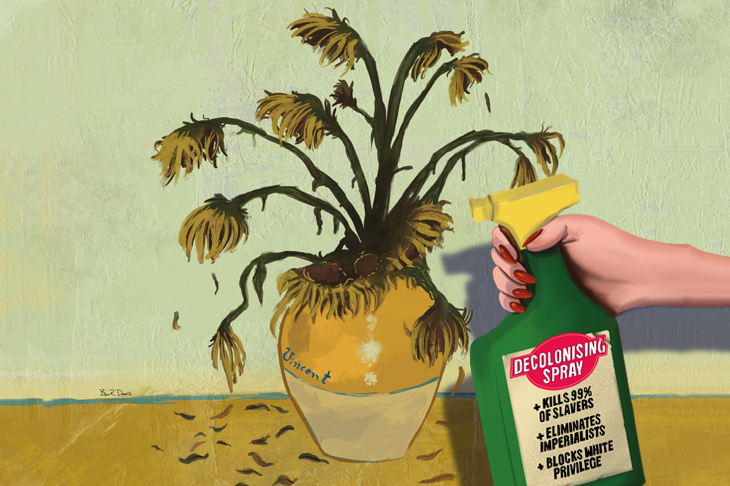
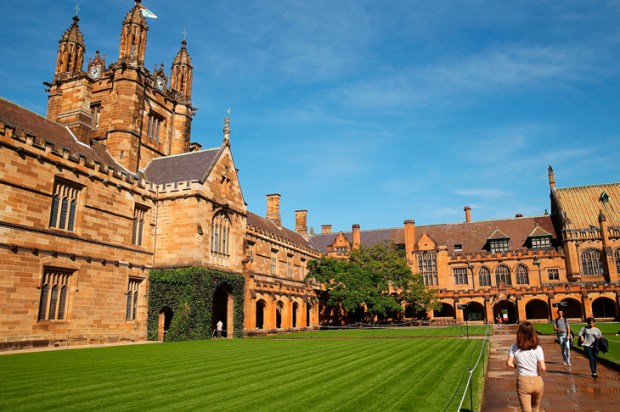
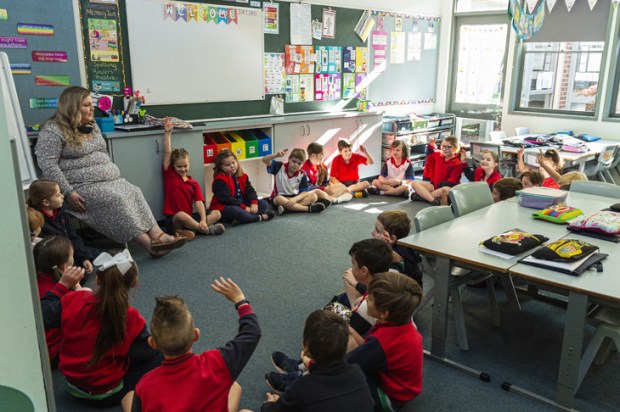
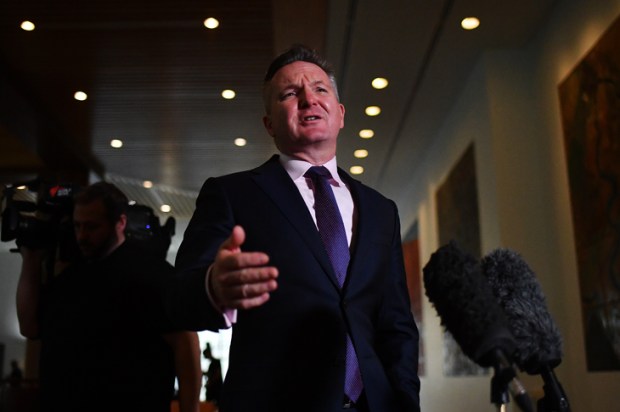

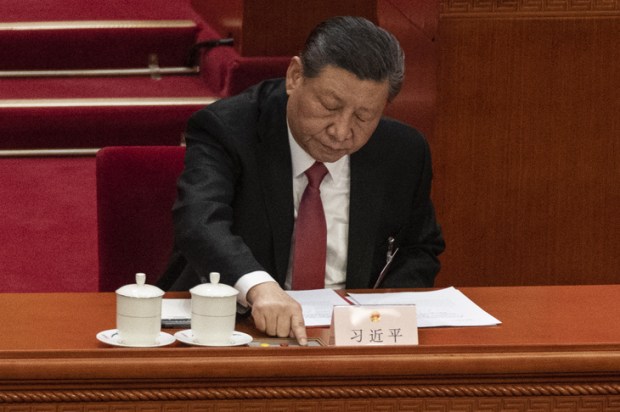
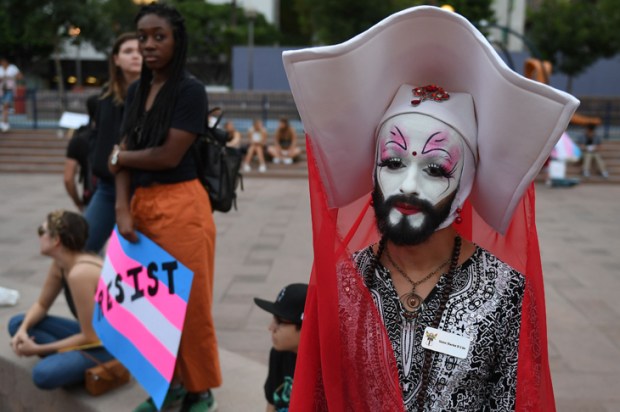






Comments
Don't miss out
Join the conversation with other Spectator Australia readers. Subscribe to leave a comment.
SUBSCRIBEAlready a subscriber? Log in